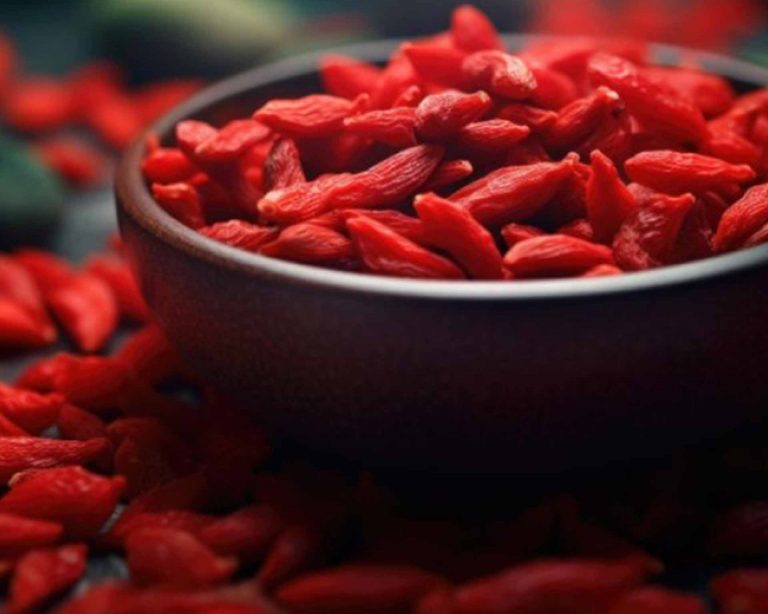Insulin resistance, a prevalent health issue, can lead to various chronic conditions, including type 2 diabetes, obesity, and heart disease. Traditional medical treatments often focus on medications and standard dietary advice. However, a holistic approach, integrating lifestyle changes, natural remedies, and mindfulness practices, offers a promising alternative. This comprehensive guide explores various strategies supported by scientific studies to help overcome insulin resistance holistically.
Nutritional Strategies:
- Whole Foods and Plant-Based Diet: Research indicates that diets rich in whole grains, fruits, vegetables, and lean proteins can improve insulin sensitivity. A study found that a plant-based diet significantly reduced insulin resistance in participants.
- Reducing Sugar and Refined Carbohydrates: Excessive consumption of sugar and refined carbs is linked to insulin resistance. A study suggests that minimizing these foods can enhance insulin function.
- Incorporating Healthy Fats: Omega-3 fatty acids, found in fish, nuts, and seeds, are known to improve insulin sensitivity. The American Journal of Clinical Nutrition reported that omega-3 supplements had a positive effect on insulin resistance.
Exercise and Physical Activity:
- Regular Exercise: A consistent exercise routine, including both aerobic and strength training, is key. The Journal of Applied Physiology states that regular physical activity improves the body’s ability to use insulin.
- Yoga and Mindful Movement: Yoga, known for its stress-reducing properties, also enhances insulin sensitivity. A study in the International Journal of Yoga confirmed the benefits of yoga for people with insulin resistance.
Stress Management and Sleep:
- Mindfulness and Meditation: Chronic stress contributes to insulin resistance. Practices like meditation can reduce stress levels, thereby improving insulin function, as shown in research published in the Journal of Diabetes Research.
- Quality Sleep: Poor sleep patterns can exacerbate insulin resistance. Ensuring 7-9 hours of restful sleep is crucial, as supported by findings in the Journal of Clinical Sleep Medicine.
Alternative Therapies:
- Acupuncture: This traditional Chinese medicine technique has shown potential in improving insulin sensitivity, according to a study in the Journal of Alternative and Complementary Medicine.
- Herbal Supplements: Certain herbs like cinnamon, berberine, and fenugreek have been found to aid in reducing insulin resistance. These benefits are highlighted in the Journal of Ethnopharmacology.
Nutritional Supplements:
In addition to dietary and lifestyle changes, certain nutritional supplements have shown promising results in improving insulin sensitivity:
- Berberine: This compound, found in several plants, has garnered attention for its potential in combating insulin resistance. A compelling meta-analysis in the journal Metabolism revealed that berberine could rival the effectiveness of metformin, a common diabetes medication, in reducing insulin resistance.
- Vitamin D: The link between Vitamin D levels and insulin resistance is well-documented. Research published in the European Journal of Clinical Nutrition has shown that Vitamin D supplementation can significantly enhance insulin sensitivity, particularly in individuals with low baseline levels.
- Omega-3 Fatty Acids: These essential fats, commonly found in fish oil, play a crucial role in overall health. A study featured in the Journal of Clinical Endocrinology & Metabolism highlighted that omega-3 fatty acids could notably improve insulin sensitivity in individuals with metabolic disorders.
Conclusion:
Embracing a holistic approach to combat insulin resistance is not just about dietary changes or exercise routines; it encompasses a complete lifestyle shift, integrating nutrition, physical activity, stress management, and alternative therapies. By adopting these strategies, individuals can take control of their health and improve their insulin sensitivity, thereby reducing the risk of chronic diseases.
“The greatest wealth is health. By nurturing our bodies with a holistic approach, we can overcome challenges like insulin resistance and pave the way for a healthier, more vibrant life.”
References:
- Banaszak M, Górna I, Przysławski J. Non-Pharmacological Treatments for Insulin Resistance: Effective Intervention of Plant-Based Diets-A Critical Review. Nutrients. 2022 Mar 27;14(7):1400. doi: 10.3390/nu14071400. PMID: 35406013; PMCID: PMC9002735.
- Macdonald IA. A review of recent evidence relating to sugars, insulin resistance and diabetes. Eur J Nutr. 2016 Nov;55(Suppl 2):17-23. doi: 10.1007/s00394-016-1340-8. Epub 2016 Nov 23. PMID: 27882410; PMCID: PMC5174139.
- Sinha S, Haque M, Lugova H, Kumar S. The Effect of Omega-3 Fatty Acids on Insulin Resistance. Life (Basel). 2023 Jun 5;13(6):1322. doi: 10.3390/life13061322. PMID: 37374105; PMCID: PMC10305526.
- Borghouts LB, Keizer HA. Exercise and insulin sensitivity: a review. Int J Sports Med. 2000 Jan;21(1):1-12. doi: 10.1055/s-2000-8847. PMID: 10683091.
- Venugopal V, Geethanjali S, Poonguzhali S, Padmavathi R, Mahadevan S, Silambanan S, Maheshkumar K. Effect of Yoga on Oxidative Stress in Type 2 Diabetes Mellitus: A Systematic Review and Meta-analysis. Curr Diabetes Rev. 2022;18(2):e050421192663. doi: 10.2174/1573399817666210405104335. PMID: 33820522.
- Priya G, Kalra S. Mind-Body Interactions and Mindfulness Meditation in Diabetes. Eur Endocrinol. 2018 Apr;14(1):35-41. doi: 10.17925/EE.2018.14.1.35. Epub 2018 Apr 18. PMID: 29922350; PMCID: PMC5954593.
- https://onlinelibrary.wiley.com/doi/abs/10.1111/j.1464-5491.2011.03459.x
- Liu Y, Fan HY, Hu JQ, Wu TY, Chen J. Effectiveness and safety of acupuncture for insulin resistance in women with polycystic ovary syndrome: A systematic review and meta-analysis. Heliyon. 2023 Feb 26;9(3):e13991. doi: 10.1016/j.heliyon.2023.e13991. PMID: 36923858; PMCID: PMC10009463.
- Yin J, Xing H, Ye J. Efficacy of berberine in patients with type 2 diabetes mellitus. Metabolism. 2008 May;57(5):712-7. doi: 10.1016/j.metabol.2008.01.013. PMID: 18442638; PMCID: PMC2410097.
- Pramono A, Jocken JWE, Blaak EE, van Baak MA. The Effect of Vitamin D Supplementation on Insulin Sensitivity: A Systematic Review and Meta-analysis. Diabetes Care. 2020 Jul;43(7):1659-1669. doi: 10.2337/dc19-2265. PMID: 33534727.
- Sinha S, Haque M, Lugova H, Kumar S. The Effect of Omega-3 Fatty Acids on Insulin Resistance. Life (Basel). 2023 Jun 5;13(6):1322. doi: 10.3390/life13061322. PMID: 37374105; PMCID: PMC10305526.








